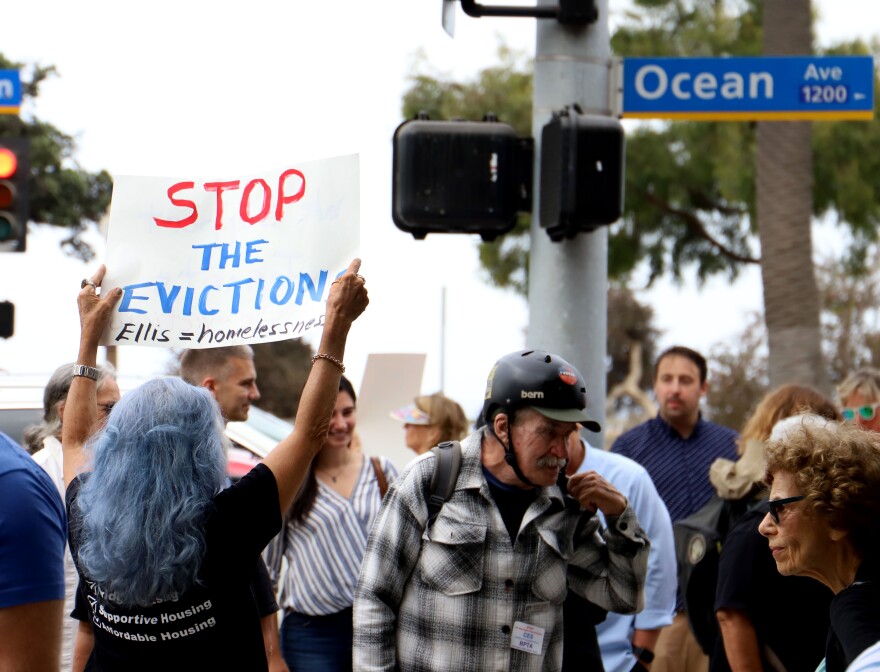In a highly anticipated decision that could have broad implications for renters across California, a Superior Court judge has ruled against a landlord seeking to carry out one of the largest mass evictions in Los Angeles history.
The judge’s determination means more than 100 tenants still living at Barrington Plaza — a 712-unit West L.A. high-rise apartment complex — will get to stay. Some long-term tenants pay far below market rates due to the city’s rent stabilization ordinance, and fear they would not be able to find affordable housing anywhere in the region if forced to leave.
“This is, no doubt, one of the most important tenants' rights legal victories in state history,” said Larry Gross, executive director of the Coalition for Economic Survival in an email on the ruling. “This victory shows when tenants unite and organize they can win.”
The backstory at Barrington
Santa Monica-based corporate landlord Douglas Emmett originally filed evictions against 577 households at Barrington Plaza back in May of 2023. The company said the property needed to be completely vacated in order to install fire sprinklers. Two large fires have broken out in the apartment buildings in recent years, with a 2020 fire resulting in the death of one person.
The company filed the evictions under California’s Ellis Act, which allows landlords to clear their buildings when they plan to “go out of business.” Thursday’s tentative ruling from Judge H. Jay Ford, III — likely to become the final ruling after another court hearing — hinged on the question of what exactly it means for a landlord to go out of business.
Both sides agreed the Ellis Act requires owners to exit the rental business in order to vacate buildings. But they disagreed on how long owners must keep those properties off the market.
The tenants’ attorney, Frances Campbell, argued the owners of Barrington Plaza had no plans to get out of the landlording business. Instead, she said, they planned to refurbish and re-rent the apartments at higher rates. Douglas Emmett’s attorneys said removing tenants for rehab work that could take years was in effect going out of business, even if the move was temporary.
Judge says Barrington was not going out of business
Ultimately, Ford said the landlord in this case had no intention of permanently going out of business when it filed the evictions. Rather, he said, the plan was to continue renting the apartments after work was complete.
“The Court concludes [the landlord’s] intent to temporarily withdraw Barrington Plaza from the rental market with the present intent to return it to the rental market after the renovations are completed is inconsistent with an intent to go out of the rental business under the Ellis Act,” Ford wrote.
Representatives for Douglas Emmett said the company has not yet reached a decision on whether to appeal the ruling, but fire safety work will continue.
‘When we stick together we can win’
Renters fighting to stay banded together through the Barrington Plaza Tenants Association, which filed wrongful eviction cases in response to Douglas Emmett’s actions.
Monique Gomez, one of the tenants involved in organizing these efforts, said if the judge had ruled in favor of the landlord, it would have opened the floodgates for other landlords throughout the state to use renovations as a pretext to evict rent-controlled tenants.
“We have been fighting these bogus evictions for over a year now,” Gomez said in an email responding to the ruling. “Tenants here have faced harassment, intimidation and uncertainty without little to no help from the city. It shows when we stick together we can win. I am overjoyed."







